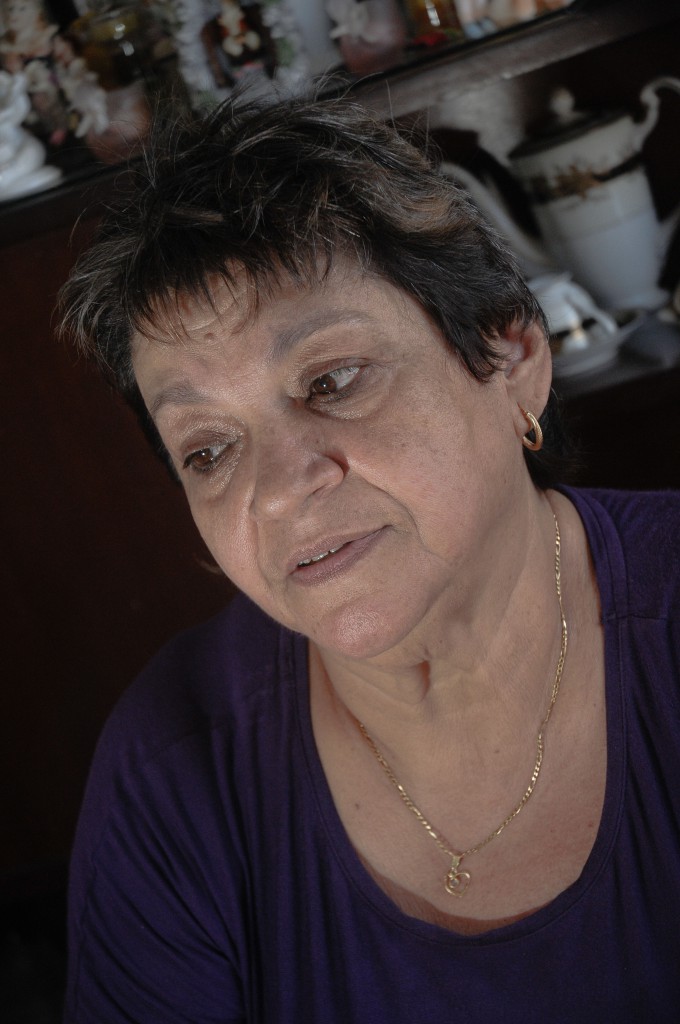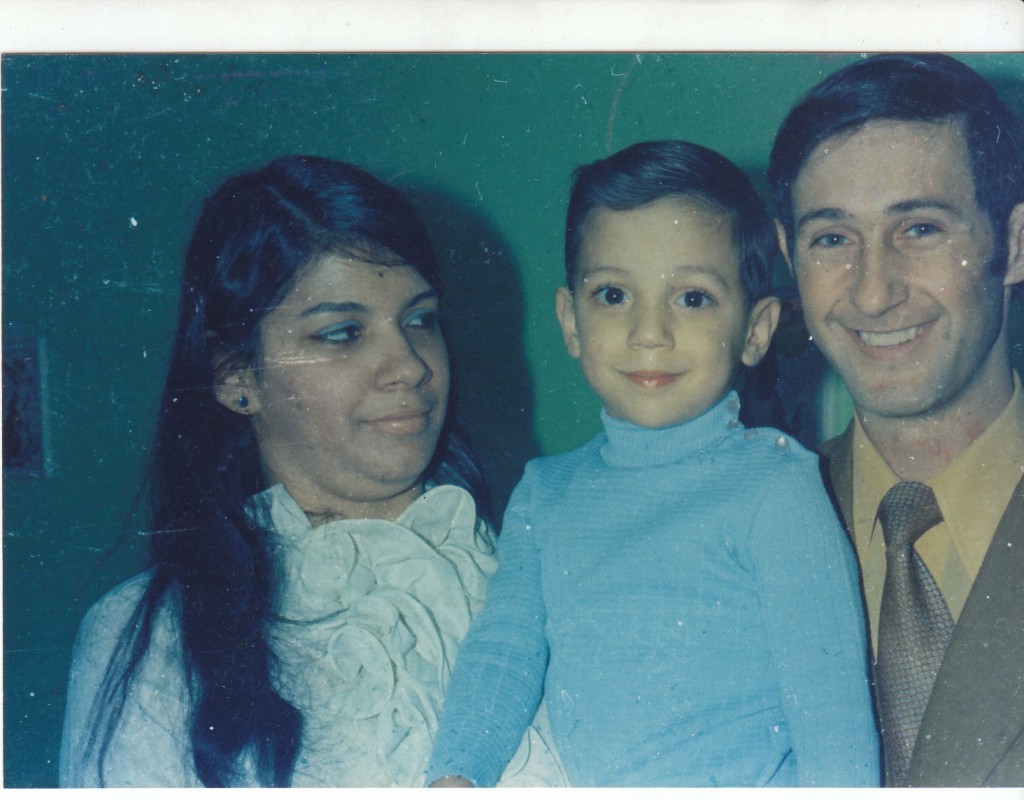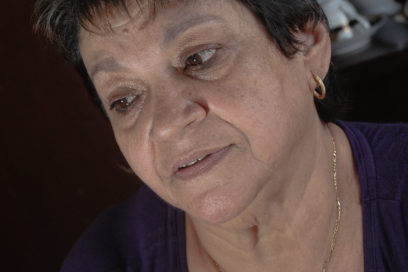
Ana Margarita Gonzalez and Rafael Hojas
in October 6, 1976, the blowing of a Cubana aircraft in flight on the coasts of Barbados is inscribed as one of the most horrifying crimes of history, due to the circumstances of the event and the death of 73 innocent people; and besides, in thousands of homes from Cuba, their relatives still cry for their losses caused by terrorist attacks committed either inside or outside Cuba.
These moments take you back from those sorrows because they still hurt and they had never more been well. You can see tears roll down their faces, because there has never been peace; it is to know terror very close; it is powerlessness; it is death. It is admitting that lives that could not restart in life and families that learned to live just with the memories of those who died for the hatred, selfishness and evil.
“There have been 42 years since that fatal action happened, and for me Sergio is not dead. I imagine him doing his task. I see him in dreams as if he was coming and it is terrible to know he is not anymore. I live with that expectative, I cannot stop suffering. “
Ada Mendoza Vergara, the widow of Sergio Armando Perez Castillo remembers that m it was just five minutes after 12 at mid night on the night of April 4, 1972. The young man who was born in October 27, 1946 in La Bomba town from Marcane Sugar Mill, today named Loynaz Echevarria from Mayari, at present in the province of Holguin was on guard in the Cuban Trade Office based in Canada on the twelfth floor of a building of shops and bars.
“The explosion of a bomb with high power tore out the door of the office and it impacted him and cut his femoral vein. Even in those conditions he crawled with his gun in the hand to guard the entrance. His health deteriorated; he was bleeding until the police arrived.”
Denounce of a crime
“The witnesses said the Canadian police instead of helping him, mistreated him, and it was the same with the others, they bit them and tried to eliminate them. They were arrested and until Fidel Castro made declaration and denounced that same day in the Conclusions of the II Congress of the Young Communist League (UJC), they did not free them. Sergio died while he was taken to the hospital.
“I remember Fidel talked about the behavior against the Cuban staff there, and warned that if they did not take measures, “there will be no security for the embassy of Canada in Cuba than that of the decency of this revolutionary government”. From that moment on the government of that country sent its condolences to the relatives and our State.
“By then, every time there was a celebration of an important day for the Revolution or we were celebrating something, the enemies had a pretext.” On July 5, 1971 an agent from the CIA placed a bomb in front of the door of that same office in Canada and was deactivated thanks to the immediate reaction of Sergio who kicked the bomb downstairs.
“Imagine what could have happened because it was 12 noon, we were all at work; I worked in the nursery where our children were. They were in the same floor. The Canadian media reported the event.
“That evidently warned the terrorists; in the next attack, they killed Sergio. It seemed they put dynamite on the ceiling of the 11th floor, because someone had rented it. The media also published it, with many photos, even of the gun that had the name of my husband on it.
“I was at home with my 4 years-old boy. The other Cuban who was working with him called the rest of the staff to tell them what had happened in the office. When they told the couple living upstairs our apartment, he immediately run to the place of the event and she, Miriam, came to my house thinking Sergio was alive.
“But he always told me: “If something happens –because I thought so -, I want that you do not bother me, do not make me waste time, and you neither call me, do not be nervous, because if something happens, someone will tell you what had happened.
“I could not avoid it, I was very nervous; the telephone was constantly ringing. Miriam was who answered the phone and told me not to be worried that Sergio was alive; I calmed down a little, but later all the Cubans gathered at my house; all the faces were sad, some of them were telling the mistreating they received. No one talked about Sergio.
“I started asking questions, until a partner came with wife and their two children. She really looked bad. She was destroyed. I asked her if she was arrested and if she saw Sergio. She asked for some coffee, when I gave it to her she told me: “Sergio is dead.” I felt heaven and earth joined.
“They asked me to sit together with them and listen to Fidel. Commander in Chief talked about Sergio – who was originally from a humble family-; he talked about his virtues as young revolutionary, and that he had met him in Biran.
We were informed they will give us the corpse the next day. When I arrived at the morgue together with a representative from Cuba, the man who was waiting for us seemed to be a CIA agent, and he refuted when they told him I was the widow. I was warned to resist and not to cry. In the middle of all that I was firm, I did not cry.
“They took us to that place ad with a very bad way he pulled the drawer to show the corpse. I saw his as he was left, with his eyes opened, with blood in his mouth and the hair of his chest. I embrace him, passed my hand through his body and kissed him a lot. Then the man urged me to choose the coffin where we will place the corpse. They showed me boxes and boxes all of them very luxurious and with unaffordable prices.
“I thought about the so many times Sergio had said he wanted to receive all the welfare while he was alive, and that after his death, he did not want anything. We made some arrangements and I finally asked for one in olive green color; he had asked me that if I was with him when he died, he would like to be dressed with that color. There they dressed him with the clothes I gave them; I travel with the corpse, my son and co-workers from the Consulate. When we arrived in Cuba, while we were at Calzada and K funerary one of his cousins dressed him with the uniform.”
The terrorist organizations Young Cuba and Student Revolutionary Board (DRE) declared they placed the bomb. The action was carried out by terrorist Juan Felipe de la Cruz, who died months later in a hotel in Paris, when an artifact exploited while he was preparing assembling it to place it in the Cuban embassy there.

I hope no one else suffers for this
Another hard moment was when she had to tell the truth of what had happened to her son on the absence of his father. “When we were travelling to return by plane to Cuba, and he asked for his father; I told him he had to stayed in that country working and that we were returning to Cuba because his grandfather was seriously ill.
“About three months later, once I went to pick him up at the nursery here in Havana I told him: “Your father died, and I explained him how the events happened. I was crying a lot. He embraced me and told me: “Mum, don´t cry anymore because my father would not like to see you crying.”
“He never more asked for him, but at present, one day, when we talked about that event he asserted me: “You do not know yet, how much I suffer the absence of a father, you not even gave me another father to do that function.” And I answered: “I cannot, my son, I could never live with another man but your father.”
Ada says that Sergio was a young boy from the country, active, happy, kind, who liked to make jokes and very revolutionary. If any of his partners got sick, he ran to help. They met when they were adolescents and married. “We created a very united family: his and mine; after his death, life plunged us in depression. His parents suffered heart disease with their sorrow and I started suffering of many illnesses.
“Later I continued working in Foreign Commerce. I asked to work in any other Cuban representation and I worked for a year in the Cuban diplomatic venue in Peru. I was there when another bomb exploited in our offices and one of my partners got seriously hurt. My illnesses did not allow me to continue and I took my husband’s pension.”
Despite everything, Ada Mendoza thanks for this interview, because it is a way to be useful to the young people and pay tribute to his husband. What else can I do? Remind you how things happened, so that I hope, some day, no one else will not have to suffer these things. They are sorrows that never go away.”


